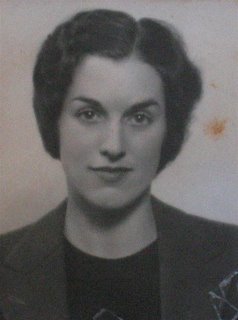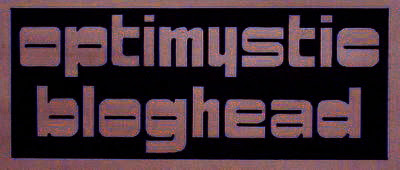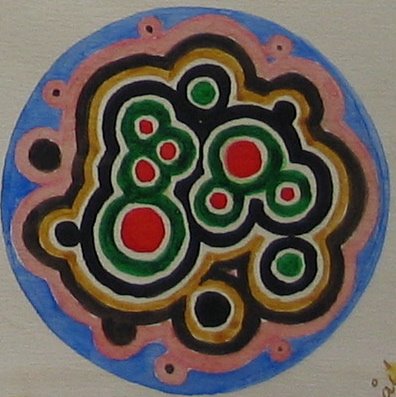
The letter did not have much impact on me; I had always known that my father was Aage Roose, a painter with a wife and a daughter. It just gave a clear outline to something that was already settled in my mind: I didn't need a father. If any busybody asked about my father I said: “He is dead.” That closed the inquiry - and for all I knew he could as well be dead.
The summer after the war ended, I was twenty, living with my aunt Eva. One sunny afternoon the phone rang. It was my half-sister, Gunvor. Someone had told her she had a little brother and she had to see me. Was that okay? Could she come? Yes of course! We made a date for lunch the next day.
At thirty-three Gunvor was still in the bloom of her beauty: Spanish in looks, dark and blue eyed, slim and elegant. She seemed very taken with her little brother. I was a bit uneasy with adoring women, but for the moment it was still pleasant to be admired. When she was leaving, Gunvor asked if she could tell our father that she had met me, and I said yes. I was curious and did not foresee the implications.
 A week later my father came for lunch. I saw that meeting me touched him, but I had no corresponding feelings. A nice elderly gentleman, with whom I did not feel any special closeness, that was all.
A week later my father came for lunch. I saw that meeting me touched him, but I had no corresponding feelings. A nice elderly gentleman, with whom I did not feel any special closeness, that was all.For the next many years our relationship consisted in two yearly lunches at one of the better restaurants in town, at Christmas and at my birthday. It soon became rather tedious; his stories about old Copenhagen bourgeoisie and artists repeated themselves, and there was nothing in my life to interest him. Even when I began to paint it didn’t give us much in common. I think he disliked my paintings as much as I disliked his, and we avoided the topic. At the end of the lunch he gave me my present, for birthday or for Christmas, always the same, one hundred Kroner (=$13). That was a handsome amount in 1946, but it was never adjusted for inflation, and as the years went by it hardly seemed worth the sacrifice of an afternoon.
When I first saw my father he said he would tell his wife that he had met me, and I should come in their home, but he never got his courage up to make good on this promise. Not until his wife had died did he invite me to his house.
It is hard now to distinguish one visit from the other, but one of the first I do remember because my father had invited his brother Thorkild and Poul Vinding, a journalist from Politiken, the newspaper of the Radical Left, which was neither very radical nor very left, but the party of the intellectual Copenhagen bourgeoisie. My famous uncle, Thorkild Roose, was an actor at the Royal Theater and still playing at the age of 84. The talk turned into rather nasty gossip about the openly gay actor, Holger Gabrielsen. Suddenly Poul Vinding turned to me and said: ”You don’t like faggots either, do you Mr. Delbanco?” Though I was out to my friends and my closest family, I had never felt like opening up to my father, and I still habitually would panic when the word faggot was mentioned among people that I didn’t trust. Without a second’s pause I countered with a question of my own as if it had been on my mind before he asked his. Afterwards I was angry with myself for being such a coward. This didn’t help to draw me closer to my father. I did not know what fathers were for, but I knew that he had cheated me out of it. I always felt that he owed me something and I found it natural that he should help me, which he did, once with an “advance on my inheritance” and once with finding a place to live.
During my years of frequent travel I didn’t see much of my father or his side of my family. The next to the last encounter was occasioned by Gunvor’s marriage to a wealthy and utterly conventional businessman. I met my father and Gunvor at his cluttered apartment; it seemed we had nothing to say to each other and we resorted to playing dice.
After that some years passed without any contact. Then, before going to India, I called, in part hoping for some financial help, but I never got the chance to ask. When he answered the phone he was angry right away, and said he didn’t want to see me. Ten minutes later he called back and said he was sorry; of course I could come.
 Our last meeting began like the others. We had our meal and he talked about whisky and cigars. I have not mentioned his phobia of religion. He hated religion to the degree that when his sister became a believer in Christian Science he stopped seeing her, though they were next-door neighbors. She got sick and died without seeing him. His utter materialism offended me and I asked him: “What do you believe? You must believe something, what is it?” It was a rhetorical question, and I don’t remember if he answered. But as he was getting up to let me out he said: “I always kept my affairs in order.”
Our last meeting began like the others. We had our meal and he talked about whisky and cigars. I have not mentioned his phobia of religion. He hated religion to the degree that when his sister became a believer in Christian Science he stopped seeing her, though they were next-door neighbors. She got sick and died without seeing him. His utter materialism offended me and I asked him: “What do you believe? You must believe something, what is it?” It was a rhetorical question, and I don’t remember if he answered. But as he was getting up to let me out he said: “I always kept my affairs in order.”“Also when you got me?” I asked.
“What do you say?”
“I say: also when you got me?”
“That was a mistake,” he said.
We went out in the hall, I put on my coat, and peaceably we said our last good-bye.
From India I wrote and told him that I was considering monkshood. He never answered, and he died the year after at the age of 92, while I was still in the East. When I returned I wrote a letter of condolence to Gunvor, but she did not reply, nor did I ever hear anything about inheritance. Generally, I know that he was beloved. Gunvor worshipped him, and on her refusal to communicate with me after his death I can measure his bitter anger. It had been better if we never had met.



3 comments:
Mister,
I read your sad story about your relationship with your father.
I had a fulltime father when I was growing up: yet all that time he was hardly perfect.
He was always home to be with us ( his kids)and our mother, but he had several extramarital affairs. That part really was a big blow to my mother, and she felt terribly betrayed, this feeling stuck to her like a disease till she died.
However, despite the fault which my father committed against my mother, I remained neutral. I played a part of a good daughter, and showed respect to my father until he died.
It is terribly difficult to be so hard to parents: I decided that I will not have that baggage to carry as I lived, hence, I reckoned it best to be good to both my parents.
Your father was utterly materialistic, however, that is a fault in his mindset.He made a mistake, as you might have done severally during your life till the end of your life, really.So,
Perhaps,if you can forgive your Dad's multiple mistakes, you can find peace within yourself.
It is not too late to ask for forgiveness. You can still change the manner of your thinking and start praying for strength against your ill thoughts. Your thoughts are really all you have in this life, either clean them or bear them for the rest of your life.
May you find peace and beautitude.
Thank you for your comment.
What happened happened - of course I can now understand his mistakes, which is in part a forgiveness. I really don't think much about it. My father was never close enough to hurt me and I know that if I had tried to actually get close to him it would not have been possible. I would have had to come out to him and he would have hated that as much as he hated my interest in religion. So, even though our relationship was unresolved, my mind is at peace about it.
Beautiful picture of yr father though. The last one.
Adjoun
Post a Comment